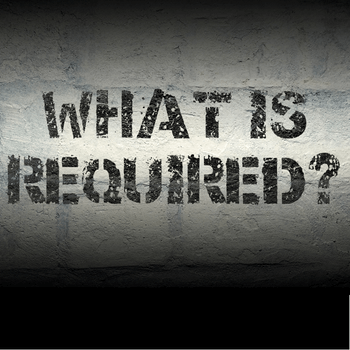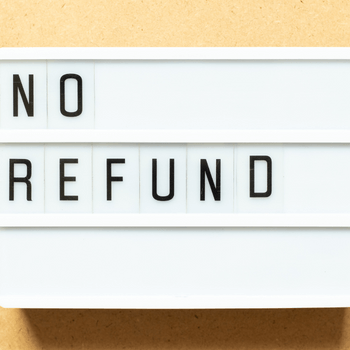What is Earnest Money? And Do I Have to Pay It?
What is Earnest Money? It’s a question we get a lot as REALTORS, especially from First Time Home Buyers. However, even with repeat clients I find a lot of them don’t understand what it is and how it works.
There are terms in Real Estate that every buyer and seller should understand. This is one of them.
That’s what we’re going to talk about today!


1) What is Earnest Money & Who Holds It?
Earnest money is an initial deposit that accompanies an “offer to purchase” a home. It’s like a deposit or good faith money, showing a seller that you are a serious buyer.
It can be any amount – the more the amount, the more serious the buyer is considered. Typically in the Indianapolis, Pendleton, Fortville area, we see 1% of the purchase price as the Earnest Money deposit with offers.
So, if the offer is $250,000, the earnest money will be around $2,500. There is no hard and fast rule about this. However, an offer of $500 earnest money for a $250,000 home can send red flags to a seller and Listing Agent – that maybe the buyer is not as serious or confident in their purchase of the home.
In Indiana it is held by the Listing Brokerage, Title Company or another party that both buyer and seller agree with. The check IS cashed and held in escrow until closing.
2) Is It Required?
Earnest Money is not required, per se, but sellers is usually more inclined to go with offers that do include around 1% of the offer price.
When a seller accepts an offer, they are putting the home in “Pending” status on the local MLS. That means it’s not actively marketed to other buyers anymore – the sellers have accepted an offer.
Seller’s consider the earnest money deposit a trade off for them discontinuing the active marketing and searching for a buyer.


3) Does the Check Get Cashed?
Yes, the earnest money check is cashed and deposited in a special escrow account owned by the Listing Brokerage, Title Company or Attorney.
It’s held in the account until closing when it is transferred to the Title Company so they can pay all the parties involved. The Title Company collects all money from the Buyer, Seller (if needed) and Lender. Then they pay off the mortgage(s), any liens, other debts against the property, commissions owed, taxes owed, etc… with any balance going to the seller.
The deposit you paid will be applied to the purchase price and fees a buyer owes. All of this will be documented on the Lender’s Closing Disclosure and the Title Company’s ALTA Settlement Statement.
4) Is Earnest Money Refundable to the Buyer?
There are differences – state to state, so be sure to check in your area. In Indiana, the earnest money is refundable in certain circumstances.
- If the home doesn’t appraise for at least the agreed upon purchase price, the seller does not have to sell lower than the accepted offer price and the buyer does not have to buy at higher than the accepted offer price. This becomes a negotiation point. If the buyer and seller cannot agree, the Earnest Money is typically refunded to the buyer.
- If the buyer is denied final approval for their mortgage loan – If the buyer is turned down for their mortgage loan, the financing contingency kicks in and their deposit is returned. However, the buyer must show they attempted in good faith to secure financing and cooperated with the lender to get it. A financing denial letter outlining the reason the buyer was denied is usually asked for by the seller.
- If the seller defaults on the agreed upon contract or refuses to complete the transaction. The buyer may also choose to sue for breach of contract or “Specific Performance.” This would need to be discussed with your real estate attorney.
- The buyer MAY get their money back if they can’t come to terms on inspection items but there is no guarantee.


5) When Can the Seller Keep the Deposit?
There are certain instances when a seller keeps the earnest money – though, again, this varies state to state.
One example would be if the buyer just changes their mind about purchasing the home. This would entitle the seller to keep the deposit and possibly sue the buyer for breach of contract. Again, advice from a real estate attorney is your best bet in this circumstance.
Other circumstances can come into play where the deposit is given to the seller or split between the buyer and seller or held until a court or mediation determines the outcome of the earnest money.
Quick Summary about an Earnest Money Deposit:
- It’s the initial deposit and tells the seller you are serious about buying their home.
- While it’s not technically required, most sellers will not accept offers without some sort of deposit.
- Your check DOES get cashed, so be prepared for this.
- It can be refundable in certain circumstances.
- It can be kept by the Seller in other circumstances.
Each state may have different laws regarding it, so please check with a local REALTOR in your state for the specifics!




